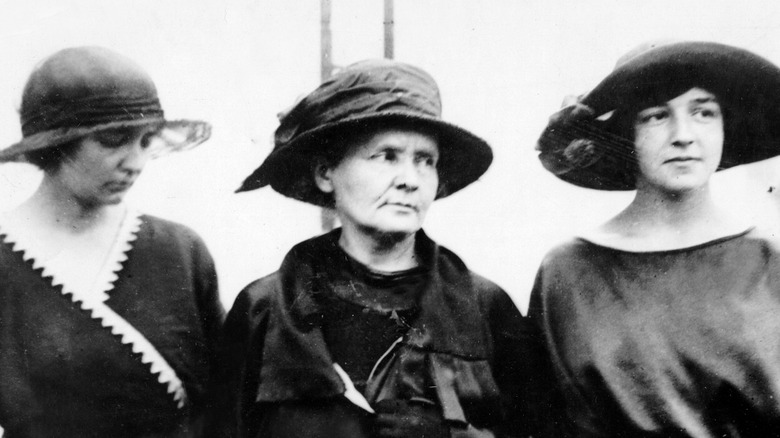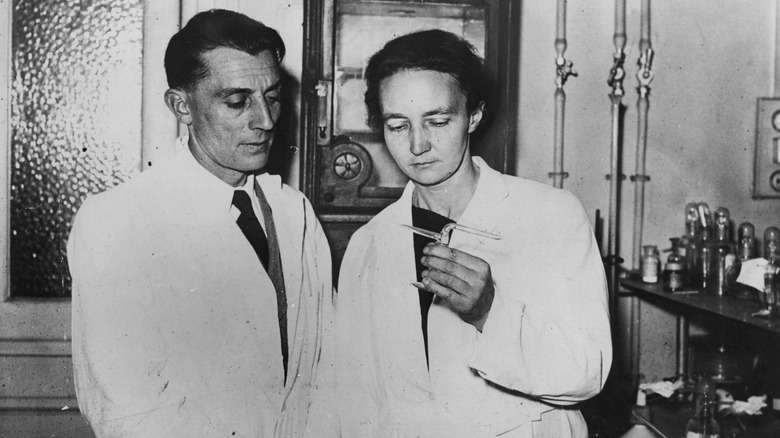The Surprising Number Of Nobel Prizes Won In Marie Curie's Family
Marie Curie and her husband, Pierre, were some of the more noteworthy scientists of the 20th century, particularly for their pioneering work in radiation and chemistry. According to Mental Floss, not only was Curie the first woman to receive a Nobel Prize when she won the prize for physics (along with her husband) in 1903, she later became the first person to win two Nobel Prizes, and the first and only person to win prizes in two unique sciences when she took one for chemistry in 1911.
Nobel Prizes became something of a family tradition in the decades to come. One of Curie's daughters, Eve, married Henry Labouisse, who was the executive director for UNICEF. In 1965, Labouisse accepted a Nobel Peace Prize on behalf of the organization, but this wasn't the only addition to the Curie family trophy cabinet. Marie and Pierre's other daughter, Irene, would follow in her parents' footsteps with her own prize for chemistry, bringing the total Nobel Prizes for the family to a whopping five.
Irene built on the work of her parents
Irene Curie was 6 years old when her parents each claimed a Nobel in physics and it didn't take her long to take to chemistry and radiology. She served as a nurse radiographer in World War I and became a Doctor of Science in 1925, writing her thesis on the alpha rays of polonium (via Nobel Prize). The next year she would marry Frederic Joliot, and the two would collaborate on radioactivity and nuclear physics. In 1935, the pair would each receive a Nobel Prize in chemistry for their work on artificial radiation.
Irene would continue to build upon the work of her parents, contributing greatly to the realms of radiology and nuclear fission, and was integral to the development of nuclear physics within France and the world at large. While her mother receives credit for being the true breakthrough innovator for both radiology and women in science, and rightly so, Marie Curie's daughter was certainly no slouch and contributed greatly to the work begun by her parents — ensuring the Curies earned every one of those multiple Nobels.

